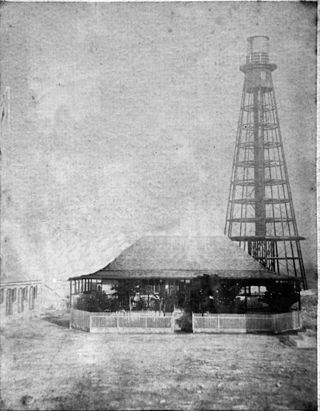A shareholder derivative suit is a lawsuit brought by a shareholder on behalf of a corporation against a third party. Often, the third party is an insider of the corporation, such as an executive officer or director. Shareholder derivative suits are unique because under traditional corporate law, management is responsible for bringing and defending the corporation against suit. Shareholder derivative suits permit a shareholder to initiate a suit when management has failed to do so. To enable a diversity of management approaches to risks and reinforce the most common forms of corporate rules with a high degree of permissible management power, many jurisdictions have implemented minimum thresholds and grounds to such suits.

Salomon v A Salomon & Co Ltd[1896] UKHL 1, [1897] AC 22 is a landmark UK company law case. The effect of the House of Lords' unanimous ruling was to uphold firmly the doctrine of corporate personality, as set out in the Companies Act 1862, so that creditors of an insolvent company could not sue the company's shareholders for payment of outstanding debts.

Foss v Harbottle (1843) 2 Hare 461, 67 ER 189 is a leading English precedent in corporate law. In any action in which a wrong is alleged to have been done to a company, the proper claimant is the company itself. This is known as "the proper plaintiff rule", and the several important exceptions that have been developed are often described as "exceptions to the rule in Foss v Harbottle". Amongst these is the "derivative action", which allows a minority shareholder to bring a claim on behalf of the company. This applies in situations of "wrongdoer control" and is, in reality, the only true exception to the rule. The rule in Foss v Harbottle is best seen as the starting point for minority shareholder remedies.
In corporate law in Commonwealth countries, an oppression remedy is a statutory right available to oppressed shareholders. It empowers the shareholders to bring an action against the corporation in which they own shares when the conduct of the company has an effect that is oppressive, unfairly prejudicial, or unfairly disregards the interests of a shareholder. It was introduced in response to Foss v Harbottle, which had held that where a company's actions were ratified by a majority of the shareholders, the courts will not generally interfere.

The United Kingdom company law regulates corporations formed under the Companies Act 2006. Also governed by the Insolvency Act 1986, the UK Corporate Governance Code, European Union Directives and court cases, the company is the primary legal vehicle to organise and run business. Tracing their modern history to the late Industrial Revolution, public companies now employ more people and generate more of wealth in the United Kingdom economy than any other form of organisation. The United Kingdom was the first country to draft modern corporation statutes, where through a simple registration procedure any investors could incorporate, limit liability to their commercial creditors in the event of business insolvency, and where management was delegated to a centralised board of directors. An influential model within Europe, the Commonwealth and as an international standard setter, UK law has always given people broad freedom to design the internal company rules, so long as the mandatory minimum rights of investors under its legislation are complied with.
Unfair prejudice in United Kingdom, company law is a statutory form of action that may be brought by aggrieved shareholders against their company. Under the Companies Act 2006 the relevant provision is s 994, the identical successor to s 459 Companies Act 1985. Unfair prejudice actions have generated an enormous body of cases, many of which are called "Re A Company", with only a six-digit number and report citation to distinguish them. They have become a substitute for the more restrictive conditions on a "derivative action", as an exception to the rule in Foss v Harbottle. Though not restricted in such a way, unfair prejudice claims are primarily brought in smaller, non-public companies. This is the text from the Act.
s 994 Petition by company member
(1) A member of a company may apply to the court by petition for an order under this Part on the ground—
(2) The provisions of this Part apply to a person who is not a member of a company but to whom shares in the company have been transferred or transmitted by operation of law, as they apply to a member of a company.
(3) In this section, and so far as applicable for the purposes of this section in the other provisions of this Part, "company" means—

Greenhalgh v Arderne Cinemas Ltd [1946] 1 All ER 512; [1951] Ch 286 is UK company law case concerning the issue of shares, and "fraud on the minority", as an exception to the rule in Foss v Harbottle.

Erlanger v New Sombrero Phosphate Co (1878) 3 App Cas 1218 is a landmark English contract law, restitution and UK company law case. It concerned rescission for misrepresentation and how the impossibility of counter restitution may be a bar to rescission. It is also an important illustration of how promoters of a company stand in a fiduciary relationship to subscribers.

Stone & Rolls Ltd v Moore Stephens[2009] UKHL 39 is a leading case relevant for UK company law and the law on fraud and ex turpi causa non oritur actio. The House of Lords decided by a majority of three to two that where the director and sole shareholder of a closely held private company deceived the auditors with fraud carried out on all creditors, subsequently the creditors of the insolvent company would be barred from suing the auditors for negligence from the shoes of the company. The Lords reasoned that where the company was only identifiable with one person, the fraud of that person would be attributable to the company, and the "company" could not rely on its own illegal fraud when bringing a claim for negligence against any auditors. It was the last case to be argued before the House of Lords.

Lister v Romford Ice and Cold Storage Co Ltd[1956] UKHL 6 is an important English tort law, contract law and labour law, which concerns vicarious liability and an ostensible duty of an employee to compensate the employer for torts he commits in the course of employment.

Pender v Lushington (1877) 6 Ch D 70 is a leading case in UK company law, which confirms that a company member's right to vote may not be interfered with, because it is a right of property. Furthermore, any interference leads to a personal right of a member to sue in his own name to enforce his right. As Lord Jessel MR put it, a member:
has a right to say, "Whether I vote in the majority or minority, you shall record my vote, as that is a right of property belonging to my interest in this company, and if you refuse to record my vote I will institute legal proceedings against you to compel you."
Wallersteiner v Moir [1974] 1 WLR 991 is a UK company law case concerning piercing the corporate veil.

Edwards v Halliwell [1950] 2 All ER 1064 is a UK labour law and UK company law case about the internal organisation of a trade union, or a company, and litigation by members to make an executive follow the organisation's internal rules.

Smith v Croft [1988] Ch 114 is a UK company law case concerning derivative claims. Its principle that in allowing a derivative claim to continue the court will have regard to the majority of the minority's views has been codified in Companies Act 2006, section 263(4).

Estmanco Ltd v Greater London Council [1982] 1 WLR 2 is a UK company law and UK insolvency law case concerning derivative claims. It held that majority voting power cannot be used to stultify the purposes for which the company was formed, although the result has to be read in light of the new directors' duties and derivative claim codified in the Companies Act 2006 sections 172 and 260-26.
Corporate litigation in the United Kingdom is that part of UK company law which gives investors the right to sue the directors of a company, or vindicate another wrong to the company, particularly where the board of directors does not wish to act itself.

Re Rica Gold Washing Co (1879) 11 Ch D 36 is a UK insolvency law case concerning the liquidation when a company is unable to repay its debts. It held that a shareholder, to having standing to bring a winding up petition must have a sufficient tangible interest in what is left over after winding up.

Sevilleja v Marex Financial Ltd[2020] UKSC 31 is a judicial decision of the Supreme Court of the United Kingdom relating to company law and the rule against reflective loss.
McDonald v Horn [1995] 1 All ER 961 is an English trusts law case on pensions, relevant for UK labour law. It enables the beneficiaries of a pension fund to be indemnified for costs in bringing actions for breach of trust, fiduciary duty or the duty of care against the trustees or directors of a pension fund.

McGaughey and Davies v Universities Superannuation Scheme Ltd and Directors [2023] EWCA Civ 873 is a UK company law, climate litigation, and pension law case, seeking permission for a derivative claim to enforce duties of the directors of the UK university pension fund, USS Ltd. The case was first to sue for directors of a major UK corporation to divest fossil fuels, and is the first case of beneficiaries of a pension corporation bringing a derivative claim for breaches of directors' statutory duties.












